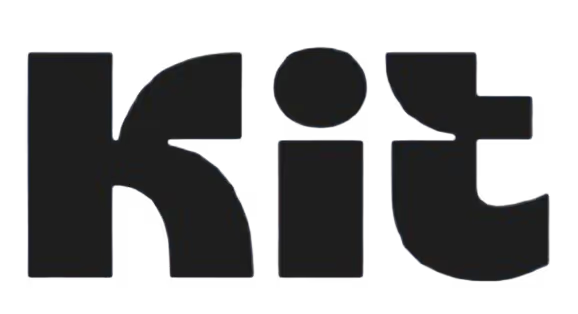Small Business Marketers Gain 13 Extra Hours Per Week Using AI (Plus Cut Costs 40%)
Small business marketers save 13 hours weekly & cut costs by 40% using marketing AI. Learn how to boost productivity.
Small businesses are always looking for ways to get more done without spending a ton of money. Well, guess what? Artificial intelligence, or marketing AI, is changing the game for them. It's helping these businesses save a lot of time and cut down on costs. We're talking about getting back around 13 hours a week and reducing expenses by 40%. That's a big deal for any small business trying to grow.
Key Takeaways
- Marketing AI helps small businesses save a lot of time, around 13 hours each week.
- Businesses can cut their marketing costs by about 40% by using AI tools.
- AI makes daily marketing tasks easier, like creating content and managing campaigns.
- Small businesses can use marketing AI to better understand their customers and market trends.
- Putting AI into your marketing plan can help your business stay competitive and ready for the future.
Transforming Marketing Workflows With AI
AI is changing how marketing gets done, especially for small businesses. It's not just about adding fancy tools; it's about rethinking the whole process. Think of it as giving your marketing team a super-powered assistant that never sleeps.
Automating Content Creation
Creating content can take forever. Blog posts, social media updates, email newsletters – it all adds up. Marketing automation AI can help with this. AI tools can generate initial drafts, suggest topics, and even repurpose existing content into different formats. This frees up your team to focus on refining the message and making sure it aligns with your brand.

AdCreative.ai is an advanced AI-powered platform designed to automate and optimize the process of ad creative development for digital marketers, agencies, and businesses. It leverages machine learning models trained on a vast dataset of high-conversion ad assets, enabling rapid generation of effective, customized ad creatives and copy for a variety of advertising channels including social (Facebook, Instagram, LinkedIn), search, and display platforms.

HoppyCopy is an AI-powered email marketing and copywriting platform designed to help marketers, businesses, and creators rapidly produce high-converting email content, newsletters, drip campaigns, and more. Leveraging advanced natural language processing and machine learning, HoppyCopy streamlines every phase of the email creation process—making it ideal for professionals seeking to boost engagement and scale their content output efficiently.
Streamlining Campaign Management
Managing marketing campaigns involves a lot of moving parts. From scheduling posts to tracking results, it's easy to get overwhelmed. AI can step in to automate marketing tasks like A/B testing, ad optimization, and lead nurturing. This means campaigns run more efficiently, and you get better results without spending all your time tweaking things manually.

ActiveCampaign is a leading autonomous marketing platform designed for businesses of all sizes seeking to automate, personalize, and optimize their marketing and sales processes. Its capabilities extend from sophisticated email marketing to sales automation, CRM, and omnichannel campaign management, powered by AI agents and actionable intelligence.

Kartra is an all-in-one marketing platform aimed at creators, coaches, small businesses, and agencies looking to streamline their online business operations. It brings together a wide array of marketing, sales, and customer management tools into a single, centralized solution, removing the need for multiple disjointed software subscriptions.
Enhancing Data Analysis for Insights
Data is key to understanding what's working and what's not. But sifting through all that information can be a pain. AI can analyze marketing data much faster than humans, identifying trends and patterns that you might miss. This gives you insights into customer behavior, campaign performance, and market opportunities, so you can make smarter decisions about where to focus your efforts.

Amplitude is a leading digital analytics platform specializing in providing unified, AI-driven insights for both product and marketing teams. Originally focused on product analytics, Amplitude has expanded its scope to serve as a central platform for understanding, optimizing, and personalizing the entire digital customer journey—from marketing acquisition through product engagement and retention.

Zoho Analytics is a comprehensive, AI-powered business intelligence (BI) and analytics platform designed to help organizations of all sizes analyze business data, generate actionable insights, and facilitate data-driven decision-making. Known for its user-friendly interface and advanced automation, Zoho Analytics bridges the gap between technical and non-technical users, making powerful analytics accessible across teams.
AI isn't about replacing marketers; it's about making them more effective. By taking care of the repetitive, time-consuming tasks, AI allows marketers to focus on the creative and strategic aspects of their work. This leads to better campaigns, happier customers, and a stronger bottom line.
Significant Time Savings Through Marketing AI Adoption
It's not just about doing things faster; it's about freeing up your team to focus on what really matters. Marketing AI is making a real difference in how small businesses manage their time. I mean, who wouldn't want more hours in the day?
Reclaiming Valuable Hours
AI-powered tools are automating tasks that used to eat up hours. Think about it: scheduling social media posts, writing basic ad copy, or sifting through data. These are all things AI can handle, giving you back precious time. Instead of spending your whole morning on repetitive tasks, you can actually work on strategy.
Boosting Team Productivity
When AI takes over the mundane stuff, your team can focus on the creative and strategic aspects of marketing. This not only makes them more productive but also boosts morale. No one likes doing the same boring thing all day. Plus, with AI-powered marketing systems handling the grunt work, your team can actually use their brains for what they're good at.
Focusing on Strategic Initiatives
With the extra time, small business marketers can finally tackle those big-picture projects they've been putting off. Developing a new marketing plan, researching new markets, or improving customer experience – these are the things that can really move the needle. It's about shifting from reactive to proactive, and AI is making that possible.
AI isn't about replacing marketers; it's about augmenting their abilities. It's a tool that allows them to be more strategic, more creative, and ultimately, more effective. By automating the time-consuming tasks, AI empowers marketers to focus on the initiatives that drive growth and build lasting customer relationships.
Reducing Operational Costs With Marketing AI
Marketing AI isn't just about saving time; it's also about saving money. For small businesses, every dollar counts, and AI can significantly reduce operational costs by streamlining processes and optimizing resource allocation. Let's explore how.
Optimizing Resource Allocation
AI can analyze your marketing spend and identify areas where you're not getting the best return. This allows you to reallocate resources to more effective channels and campaigns. For example, AI can determine that your social media ads are outperforming your email marketing, prompting you to shift your budget accordingly. This data-driven approach ensures that every marketing dollar is used efficiently. It's like having a financial advisor for your marketing budget, constantly tweaking and optimizing for maximum impact.
Minimizing Manual Labor Expenses
One of the most significant ways AI reduces costs is by automating tasks that would otherwise require manual labor. Think about the time spent on data entry, report generation, and even basic content creation. AI can handle these tasks quickly and accurately, freeing up your team to focus on more strategic initiatives. For example, AI can automate the recruitment process applicant tracking systems (ATS) by scanning resumes and identifying qualified candidates, reducing hiring costs.
Achieving Greater ROI
Ultimately, the goal of any marketing investment is to achieve a greater return on investment (ROI). AI helps you do just that by improving the effectiveness of your campaigns and reducing wasted spend. By personalizing customer engagement, predicting market trends, and segmenting your audience more effectively, AI ensures that your marketing efforts are targeted and impactful. This leads to higher conversion rates, increased sales, and a better ROI overall.
By using AI to automate repetitive tasks, optimize campaigns, and personalize customer experiences, small businesses can achieve significant cost savings and improve their bottom line. It's not about replacing human marketers; it's about augmenting their abilities and making them more efficient.
Unlocking New Marketing Capabilities With AI
AI isn't just about saving time; it's also about doing things you couldn't do before. Small businesses can now access marketing strategies that were once only available to large corporations with big budgets. Let's explore some of these new capabilities.
Personalized Customer Engagement
Imagine tailoring every customer interaction to their specific needs and preferences. That's the power of AI. AI allows for hyper-personalization at scale, analyzing customer data to deliver the right message, at the right time, through the right channel. This goes beyond simply using someone's name in an email; it's about understanding their behavior, predicting their needs, and offering solutions before they even ask. This level of personalization can significantly improve customer satisfaction and loyalty. For example, AI can improve HR processes by automating personalized onboarding experiences.

Mailmodo is a next-generation email marketing automation platform distinguished by its ability to deliver highly interactive and personalized emails using AMP (Accelerated Mobile Pages) technology. This empowers users to embed forms, surveys, appointment booking, carts, and more directly within emails—boosting engagement and completion rates by reducing friction between the inbox and user action.
Predictive Analytics for Market Trends
Gone are the days of relying solely on gut feelings or past performance to predict future trends. AI can analyze vast amounts of data to identify emerging patterns and predict market shifts. AI powered marketing platforms can help you anticipate customer demand, optimize your product offerings, and stay ahead of the competition. This means you can make data-driven decisions about where to invest your marketing resources, ensuring you're always one step ahead.

Similarweb is an AI-powered digital data intelligence platform that delivers comprehensive, real-time insights into digital markets, web traffic, competitor activity, and consumer trends. Designed for marketers, strategists, analysts, and investors, Similarweb stands out for its advanced predictive analytics, allowing organizations to anticipate market shifts and make data-driven decisions with confidence.
Advanced Audience Segmentation
Traditional audience segmentation often relies on basic demographics. AI takes this to the next level by analyzing a wide range of data points, including online behavior, purchase history, and social media activity, to create highly granular audience segments. This allows you to target your marketing efforts with laser precision, ensuring that your messages are relevant and engaging to each specific group. Here's how it breaks down:
- Behavioral Segmentation: Groups based on actions taken, like website visits or purchases.
- Psychographic Segmentation: Focuses on values, interests, and lifestyle.
- Predictive Segmentation: Uses AI to forecast future behavior and segment accordingly.

Kit (formerly ConvertKit) is an email-first operating system tailored for creators who want to grow their audience, engage subscribers, automate marketing, and monetize their content with ease. It combines email marketing, landing pages, automation, segmentation, and e-commerce tools into a unified platform designed to help creators build sustainable businesses.
By using AI for audience segmentation, small businesses can dramatically improve the effectiveness of their marketing campaigns, leading to higher conversion rates and a better return on investment.
Implementing Marketing AI for Small Businesses

Choosing the Right AI Tools
Selecting the appropriate AI marketing tools for small business is a critical first step. It's easy to get overwhelmed by the sheer number of options, so start by identifying your biggest marketing challenges. Are you struggling with content creation, lead generation, or customer engagement? Once you know your pain points, you can research tools that specifically address those needs. Consider factors like ease of use, integration with your existing systems, pricing, and customer support. Free trials are your friend – take advantage of them to test out different platforms before committing.
Integrating AI into Existing Systems
Integrating small business AI marketing into your current workflow doesn't have to be a complete overhaul. Start small by focusing on one or two key areas. For example, you could begin by using AI-powered tools to automate your social media posting or to personalize your email marketing campaigns. The key is to ensure that the AI tools you choose can seamlessly integrate with your existing CRM, email marketing platform, and other marketing software. This will help you avoid data silos and ensure that your AI-powered efforts are aligned with your overall marketing strategy.
Training Your Marketing Team
AI is a tool, and like any tool, it requires training to use effectively. Don't expect your marketing team to become AI experts overnight. Instead, provide them with the resources and support they need to learn how to use the new tools. This could include online courses, workshops, or one-on-one training sessions. Encourage experimentation and create a culture where it's okay to make mistakes.
Remember, AI is meant to augment your team's capabilities, not replace them. Focus on training your team to use AI to enhance their creativity, improve their efficiency, and make better decisions.
Here's a simple breakdown of how to approach training:
- Start with the basics: Explain what AI is and how it can be used in marketing.
- Provide hands-on training: Let your team experiment with the tools and learn by doing.
- Offer ongoing support: Be available to answer questions and provide guidance.
- Celebrate successes: Recognize and reward team members who are using AI effectively.
By investing in training, you'll empower your team to marketing automation for small business and unlock the full potential of AI.
Measuring the Impact of Marketing AI
It's one thing to implement AI marketing tools, but it's another to know if they're actually working. You need to track the right things to see real progress. Here's how to measure the impact of AI on your small business marketing efforts.
Tracking Key Performance Indicators
Start by identifying the KPIs that matter most to your business. These are the metrics that directly reflect your marketing goals. Don't just look at vanity metrics; focus on indicators that show real business impact. For example:
- Conversion rates: Are more leads turning into customers?
- Customer acquisition cost (CAC): Is it cheaper to acquire customers with AI?
- Website traffic: Is AI-driven content boosting your site's visibility?
Analyzing Efficiency Gains
AI is supposed to save you time and resources. So, how do you measure that? Start by looking at how long tasks used to take before AI and how long they take now. For example:
Evaluating Cost Reductions
AI should also help you cut costs. Track where you're spending less money. This could be in areas like:
- Reduced ad spend through better targeting
- Lower labor costs due to automation
- Decreased spending on external tools because AI handles it
It's important to remember that measuring the impact of AI is an ongoing process. Don't expect to see results overnight. Keep tracking your KPIs, analyzing efficiency gains, and evaluating cost reductions to get a clear picture of AI's true value to your marketing strategy.
Future-Proofing Your Marketing Strategy With AI

Staying Ahead of the Competition
To stay competitive, small businesses need to embrace artificial intelligence in marketing. It's not just about keeping up; it's about getting ahead. By integrating AI, you can anticipate market shifts and customer needs before your competitors do. This proactive approach allows you to adjust your strategies quickly and efficiently, ensuring you remain relevant and appealing to your target audience. Think of it as having a crystal ball that shows you where the market is headed, enabling you to steer your marketing efforts in the right direction.
Adapting to Evolving Market Demands
Market demands are constantly changing, and what works today might not work tomorrow. AI provides the agility needed to adapt quickly to these changes.
- AI-powered analytics can identify emerging trends.
- AI can help personalize customer experiences at scale.
- AI can automate repetitive tasks, freeing up your team to focus on strategic initiatives.
By using AI to monitor market trends and customer behavior, you can make data-driven decisions that keep your marketing strategy fresh and effective. This adaptability is key to long-term success in a dynamic business environment. It's about being ready for anything and using AI to navigate the ever-changing landscape.
Building a Resilient Marketing Framework
Building a resilient marketing framework means creating a system that can withstand challenges and continue to deliver results even in uncertain times. AI in digital marketing plays a crucial role in this by providing tools for risk management, scenario planning, and automated responses to unexpected events.
Consider these points:
- AI can identify potential risks and vulnerabilities in your marketing campaigns.
- AI can help you develop contingency plans to mitigate these risks.
- AI can automate responses to crises, ensuring your marketing efforts remain consistent and effective.
With artificial intelligence for marketing, you're not just reacting to problems; you're proactively building a marketing strategy that can weather any storm. This resilience is what separates successful businesses from those that struggle in the face of adversity.
Conclusion
So, what's the big takeaway here? It's pretty clear: AI isn't just some fancy tech for big companies anymore. Small businesses, the ones that really need to watch their budgets and time, are finding it super helpful. We're talking about getting back a ton of hours each week, like 13 extra hours, which is wild. And on top of that, they're cutting costs by a good chunk, around 40%. That's a lot of money staying in their pockets. This isn't about replacing people, it's about giving small business owners and their teams tools to do more with what they have. It lets them focus on the stuff that really matters, like making their customers happy and growing their business. If you're running a small business and haven't looked into AI yet, now might be a really good time to check it out. It could change how you do things for the better.
Frequently Asked Questions
How does AI actually save time for small business marketers?
AI helps small businesses by taking over repetitive tasks like writing social media posts or sending emails. This frees up marketers to focus on bigger ideas, saving a lot of time.
Can AI really help small businesses save money on marketing?
Yes, AI can significantly cut costs. It helps businesses use their money better by making marketing campaigns more effective and reducing the need for lots of staff to do manual work.
What new things can small businesses do with AI in their marketing?
AI makes marketing smarter. It can look at lots of customer information to figure out what people like, helping businesses send messages that feel special to each person. It also helps predict what customers might want next.
How can a small business start using AI for marketing?
Small businesses should pick AI tools that are easy to use and fit their current systems. It's also important to teach their marketing team how to use these new tools effectively.
How do I know if AI marketing is working for my business?
You can check if AI is working by looking at key numbers, like how much faster tasks are getting done or how much money you're saving. This helps you see the real benefits.
Why is AI important for the future of a small business's marketing?
Using AI helps businesses stay competitive because they can react faster to market changes and offer more personalized experiences to customers. It builds a stronger marketing plan for the future.








